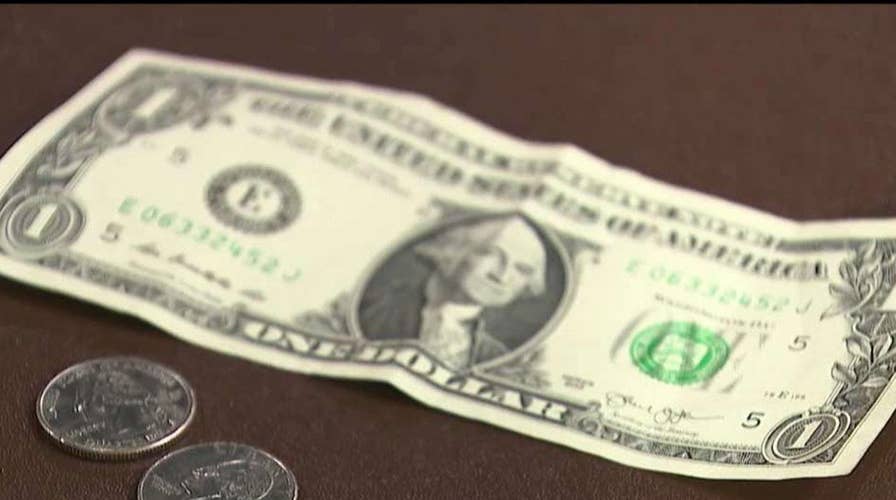CBO warns deficit will grow more than expected
The Congressional Budget Office revised its economic outlook after Congress voted to terminate old spending limitations which kept some federal expenditures in check; senior Capitol Hill producer Chad Pergram reports.
June saw the federal government’s largest monthly budget deficit to date as coronavirus relief programs exploded and tax revenue was slashed by millions of job losses.
The Treasury Department said Monday that the deficit hit $864 billion last month, an amount that surpassed most annual deficits in the nation’s history. The gap for the entire previous fiscal year was $984 billion. The previous monthly deficit record was April with $738 billion.
As stimulus spending has soared the budget deficit hit $3 trillion in the past 12 months through June, or 14 percent of gross domestic product.
The Congressional Budget Office has projected the annual deficit could total $3.7 trillion in the fiscal year that ends Sept. 30.
The June deficit was driven by various government relief programs, such as an additional $600 per week in expanded unemployment benefits and a Paycheck Protection Program that provided forgivable loans to businesses that could keep workers on their payrolls.
The report showed that the cost of the Paycheck Protection Program in June was $511 billion, though that figure reflected a charge to the federal government for all bank loans under the program, before banks determine what businesses met the criteria for having their loans forgiven. Those requirements include spending at least 60 percent of the loan amount on worker pay with the other 40% going to overhead costs such as rent and utilities.
Another reason for the surge in the June deficit was the federal government delaying tax payments until July 15 this year instead of June.
Deficits could widen if Congress moves forward with another round of coronavirus relief legislation. Congress has authorized $3.3 trillion since March to combat the impact of shutdowns in the form of stimulus checks and emergency loans and grants to businesses and state and local governments. But many argue more is needed. In May the House passed another $3 trillion coronavirus relief bill, but the Senate has yet to discuss its own legislation.
SECOND CORONAVIRUS STIMULUS CHECK COULD FACE SOME OPPOSITION
The spike in red ink has left some Republicans hesitant to pursue new relief legislation and to call for any new aid to be narrowly tailored to the hardest-hit industries. Fox News is told Republicans were aiming for a bill costing no more than $1 trillion. Sen. Majority Leader Mitch McConnell said if the Senate takes up another coronavirus relief bill, it will be after it returns to the Hill on July 20.
Trump and McConnell aren’t ruling out another round of targeted, direct stimulus checks – especially for those making less than $40,000.
CLICK HERE TO GET THE FOX NEWS APP
The Trump administration has continued to advocate for one idea unpopular with both Republicans and Democrats: a cut in the payroll taxes employers pay on behalf of their workers. The federal government has levied such taxes on the wages of employees. Payroll taxes have financed Social Security and Medicare, which have accounted for nearly a quarter of all government revenue. Pruning the payroll tax cut could further explode the national debt, contributing hundreds of billions if not trillions of dollars of red ink – on top of the staggering spending OK'd by Congress this year alone.
Fox News' Chad Pergram and The Associated Press contributed to this report.












































